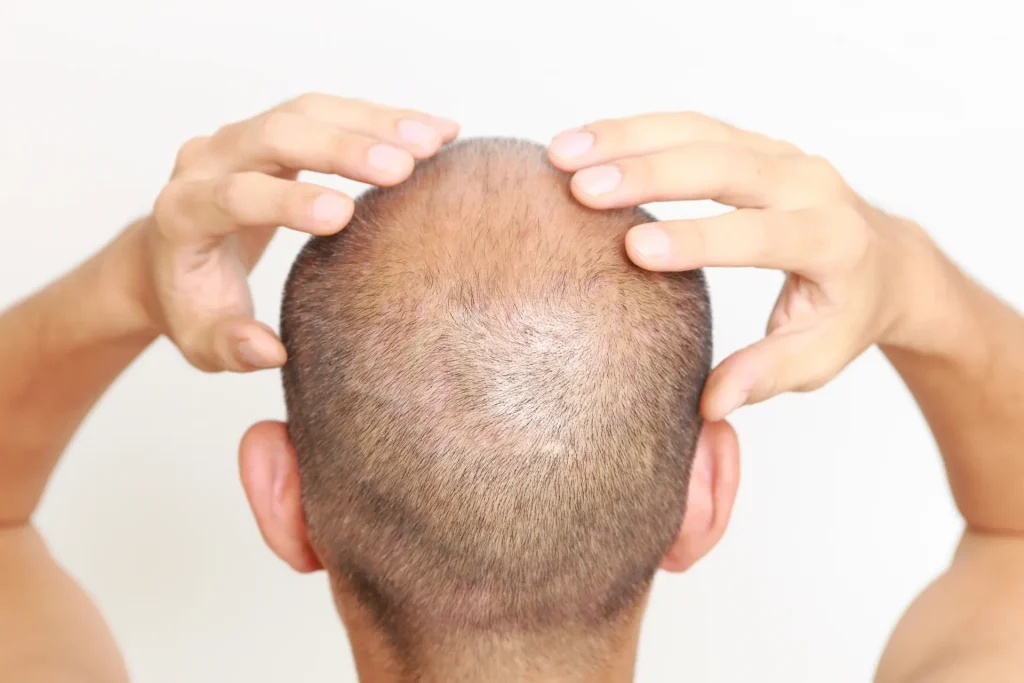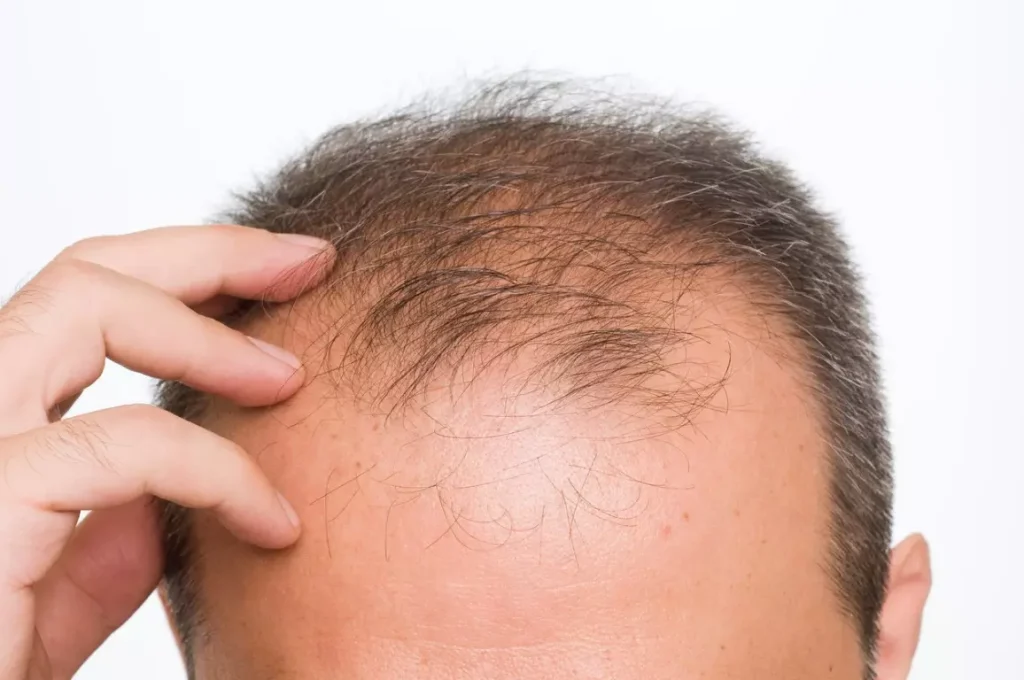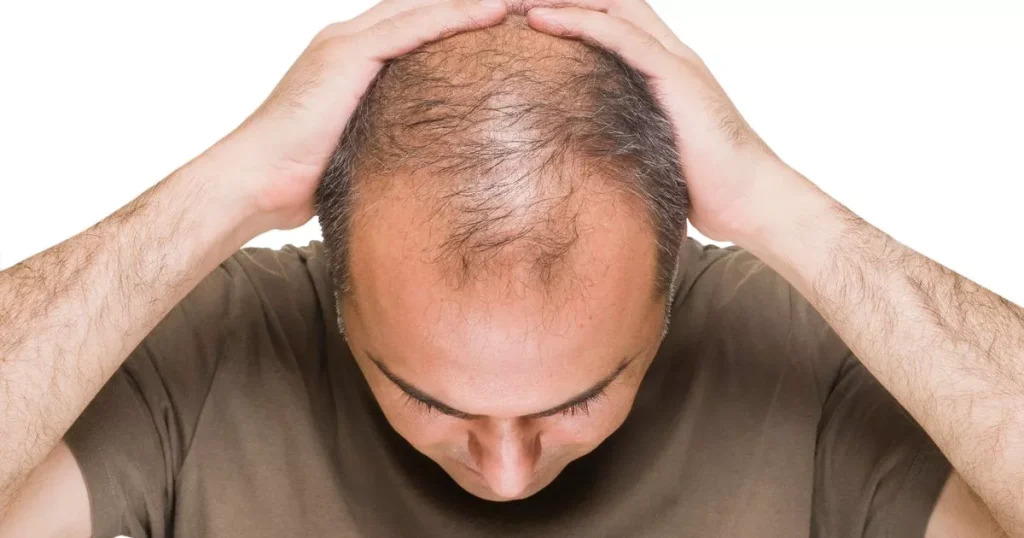After undergoing a hair transplant, experiencing numbness in the recipient and donor areas is a common side effect. This occurs due to the disruption of nerves during the surgery. The good news is that the numbness is usually temporary and should subside within a few weeks to a few months after the procedure. However, the duration of numbness can vary from person to person, so it’s important to be patient and allow your body the time it needs to heal. In some cases, it may take up to 6 months for full sensation to return. If you have any concerns about the duration of numbness after your hair transplant, it’s best to consult with your surgeon for personalized advice.
Understanding the Normal Duration of Numbness After a Hair Transplant Surgery

After undergoing a hair transplant surgery, it is common for patients to experience some degree of numbness in the recipient area where the hair follicles have been transplanted. This numbness is a result of the trauma inflicted on the nerves during the surgery, and it is a normal part of the healing process. However, it is important for patients to understand the typical duration of numbness after a hair transplant in order to manage their expectations and avoid unnecessary concern.
Factors Affecting Numbness Duration
The duration of numbness after a hair transplant surgery can vary from patient to patient, and it may be influenced by several factors such as:
- Nerve Sensitivity: Individuals have different levels of nerve sensitivity, which can affect how long it takes for the nerves to regenerate and for normal sensation to return.
- Extent of Surgery: The size and complexity of the transplant procedure can impact the degree of nerve trauma and, consequently, the duration of numbness.
- Healing Rate: The rate at which the body heals can also affect how quickly the nerves recover and sensation is restored.
Normal Duration of Numbness
While the duration of numbness can vary, most patients can expect the following timeline for the return of sensation after a hair transplant surgery:
- Immediate Post-Surgery: It is normal to experience significant numbness immediately after the surgery, as the local anesthesia wears off and the nerves begin to recover from the trauma.
- First Few Weeks: In the first few weeks following the surgery, patients may still experience numbness in the recipient area, but gradual improvement in sensation should be noticeable.
- 3 to 6 Months: By the 3 to 6-month mark, the majority of patients will have regained normal sensation in the transplanted area, although some residual numbness may persist in a small percentage of cases.
- Long-Term: In rare cases, some patients may experience prolonged or permanent numbness, but this is uncommon and should be discussed with the surgeon if it occurs.
It is important for patients to maintain open communication with their surgeon throughout the healing process, and to follow all post-operative care instructions to ensure the best possible outcome and resolution of any post-surgical symptoms.
Dealing with Post-Transplant Numbness: What to Expect

Undergoing a transplant can bring about a range of physical and emotional changes, and one common side effect is numbness. Understanding what to expect and how to manage this symptom can help individuals better cope with the post-transplant experience.
Causes of Post-Transplant Numbness
Numbness following a transplant can be attributed to a variety of factors, including the surgical procedure itself, nerve damage, or side effects of medications. It is important for patients to communicate any symptoms of numbness to their medical team in order to determine the underlying cause and receive appropriate treatment.
What to Expect
Post-transplant numbness may manifest as a tingling sensation, a lack of sensation, or a feeling of pins and needles in the affected area. This can occur in the hands, feet, or other parts of the body. While it is common for some degree of numbness to be present immediately following the transplant, it is important to monitor and report any changes or worsening of symptoms to healthcare providers.
Managing Numbness
Patients can take steps to manage post-transplant numbness by staying physically active, maintaining a healthy lifestyle, and adhering to their prescribed medication regimen. Additionally, certain therapies such as physical therapy or medication adjustments may be recommended by healthcare professionals to help alleviate symptoms and improve overall comfort.
It is important for individuals to stay informed about the potential side effects of transplant surgery and to seek support from their medical team and fellow transplant recipients. By taking an active role in their care and seeking appropriate resources, individuals can navigate the post-transplant journey with greater confidence and resilience.
Managing Numbness After Hair Transplant: Tips and Remedies
Undergoing a hair transplant procedure can be a life-changing experience for many, but it may also come with some temporary side effects. One common side effect that patients may experience after a hair transplant is numbness in the scalp. This numbness can be uncomfortable and disconcerting, but there are ways to manage it effectively. In this article, we will explore some tips and remedies for managing numbness after a hair transplant.
Understanding the Cause
Before diving into remedies, it’s important to understand why numbness occurs after a hair transplant. During the procedure, small incisions are made in the scalp to implant the hair grafts. This can disrupt the sensory nerves in the scalp, leading to temporary numbness. The body’s natural healing process will eventually restore sensation, but in the meantime, there are things you can do to alleviate the discomfort.
Rest and Patience
Rest is crucial for the healing process after a hair transplant. Your body needs time to recover, and this includes allowing the sensory nerves in the scalp to regenerate. Avoiding strenuous activities and getting plenty of sleep can help support the healing process.
Massage and Stimulation
Gentle massage of the scalp can help stimulate blood flow and promote healing. Be sure to check with your surgeon first to ensure that it is safe to massage the treated area. Some patients also find relief from numbness by using scalp stimulation devices, such as vibrating brushes or massagers.
Topical Treatments
There are various topical treatments and oils that may help alleviate numbness and discomfort after a hair transplant. These can include menthol-based creams, essential oils, or prescribed medications. It’s important to consult with your surgeon before using any topical treatments to ensure they are safe and appropriate for your specific situation.
Follow-Up with Your Surgeon
Communication with your surgeon is key during the recovery process. If you are experiencing prolonged numbness or significant discomfort, it’s important to contact your surgeon. They can provide guidance and determine if any additional treatments or interventions are necessary.
Managing numbness after a hair transplant requires patience and a proactive approach to self-care. By understanding the cause of numbness and utilizing these tips and remedies, patients can effectively navigate this temporary side effect and look forward to the long-term results of their hair transplant.
Factors Affecting the Length of Numbness Following a Hair Transplant

After undergoing a hair transplant, one common concern for patients is the duration of numbness that may occur in the recipient area of the scalp. Numbness is a typical side effect of the procedure and can vary in length from person to person. Several factors can influence how long numbness lasts following a hair transplant.
1. Technique Used in the Hair Transplant Procedure
The method and technique employed during the hair transplant surgery can play a significant role in the duration of numbness. For instance, the use of the FUT (Follicular Unit Transplantation) technique may result in longer-lasting numbness compared to the FUE (Follicular Unit Extraction) method.
2. Patient’s Healing Process
Each individual’s healing process is unique, and this can impact the length of numbness following a hair transplant. Factors such as overall health, immune system function, and adherence to post-operative care instructions can all influence how quickly sensation returns to the recipient area.
3. Nerve Regeneration Rate
After the trauma of the hair transplant procedure, nerves in the scalp need time to regenerate and restore sensation. The rate at which nerve regeneration occurs can vary from person to person, affecting the duration of numbness experienced post-surgery.
It is important to note that while numbness is a common side effect of hair transplant surgery, it is typically temporary and will gradually subside as the scalp heals. Patients are advised to follow their surgeon’s post-operative care guidelines to support the healing process and promote a speedy recovery.
Summary
- Technique: The method used in the hair transplant procedure can impact numbness duration.
- Healing Process: The patient’s overall healing process and adherence to post-operative care instructions are crucial.
- Nerve Regeneration: The rate of nerve regeneration plays a role in the length of numbness following surgery.
| Factors | Impact on Numbness |
|---|---|
| Technique | May result in longer-lasting numbness |
| Healing Process | Can influence how quickly sensation returns |
| Nerve Regeneration | Affects the duration of numbness experienced post-surgery |
Seeking Professional Advice for Prolonged Numbness After Hair Restoration
After undergoing a hair restoration procedure, it is not uncommon to experience some degree of numbness in the treated areas. However, if this numbness persists for an extended period of time, it is important to seek professional advice.
Prolonged numbness can be a cause for concern and may indicate an underlying issue that needs to be addressed. In some cases, it could be a sign of nerve damage or poor blood circulation in the scalp. Without proper intervention, these issues could potentially lead to long-term complications.
If you are experiencing prolonged numbness after a hair restoration procedure, it is crucial to consult with a qualified healthcare professional or the specialist who performed the treatment. They can assess your condition, determine the cause of the numbness, and recommend appropriate treatment options.
Seeking professional advice is imperative
Ignoring prolonged numbness can have serious consequences. It is always better to err on the side of caution and seek professional advice when dealing with post-procedure symptoms. Only a trained medical professional can provide an accurate diagnosis and personalized recommendations based on your specific situation.
Don’t delay in seeking help
Time is of the essence when it comes to addressing prolonged numbness after a hair restoration procedure. The sooner you seek professional advice, the better the chances of identifying and resolving any underlying issues. Delaying treatment could potentially worsen the condition and limit the effectiveness of interventions.
Takeaway
Ultimately, seeking professional advice for prolonged numbness after hair restoration is crucial for ensuring your long-term health and well-being. Don’t hesitate to reach out to a healthcare professional if you have concerns about persistent numbness following a hair restoration procedure.
The Psychological Aspect: Coping with Numbness During Hair Transplant Recovery

Undergoing a hair transplant procedure is a significant decision that can bring about both physical and psychological changes. While much of the focus is often on the physical recovery and the resulting aesthetic changes, it’s important to acknowledge the psychological aspect of the recovery process, particularly when it comes to coping with numbness.
During the recovery period following a hair transplant, it is common for patients to experience numbness in the areas where the grafts have been transplanted. This numbness can be temporary, but it can also linger for an extended period, causing discomfort and anxiety for some patients.
Understanding the Psychological Impact
The sensation of numbness, while a normal part of the healing process, can have a significant psychological impact on individuals. It can lead to feelings of disconnection from the body, anxiety about whether normal sensation will return, and frustration with the limitations it imposes on daily activities.
For many individuals, the feeling of numbness can be unsettling, as it serves as a constant reminder of the surgical procedure and the changes that have taken place. This can lead to a range of emotional responses, including stress, frustration, and even a sense of grief for the loss of sensation in the affected areas.
Coping Strategies
It’s important for individuals undergoing hair transplant recovery to have strategies in place to cope with the psychological impact of numbness. This may include seeking support from mental health professionals, engaging in relaxation techniques, and finding ways to shift focus away from the sensation of numbness.
“It’s crucial for individuals to recognize that the psychological impact of numbness is a natural response to the changes happening in their bodies. Seeking support and finding healthy coping mechanisms can make a significant difference in how individuals navigate this aspect of the recovery process.”
Engaging in open and honest conversations with medical professionals and support networks can also help individuals feel more empowered and less isolated in their experiences. By acknowledging the psychological impact of numbness and actively seeking out coping strategies, individuals can better navigate the challenges of the recovery process.
In conclusion, the psychological aspect of coping with numbness during hair transplant recovery is an important consideration that should not be overlooked. By understanding the impact of numbness and implementing healthy coping strategies, individuals can better navigate the psychological challenges of the recovery process.
Frequently Asked Questions
What are the common causes of numbness?
Common causes of numbness include pinched nerves, pressure on nerves, vitamin deficiencies, and certain medical conditions.
When should I seek medical help for numbness?
You should seek medical help for numbness if it is persistent, accompanied by other symptoms, or affecting your daily activities.
How is numbness diagnosed?
Numbness is diagnosed through a physical examination, medical history review, and may involve tests such as nerve conduction studies or imaging scans.
What are the treatment options for numbness?
Treatment options for numbness may include addressing the underlying cause, medication, physical therapy, and lifestyle modifications.
Can numbness be prevented?
Numbness may be prevented by maintaining a healthy lifestyle, avoiding prolonged pressure on nerves, and addressing any underlying health conditions.
